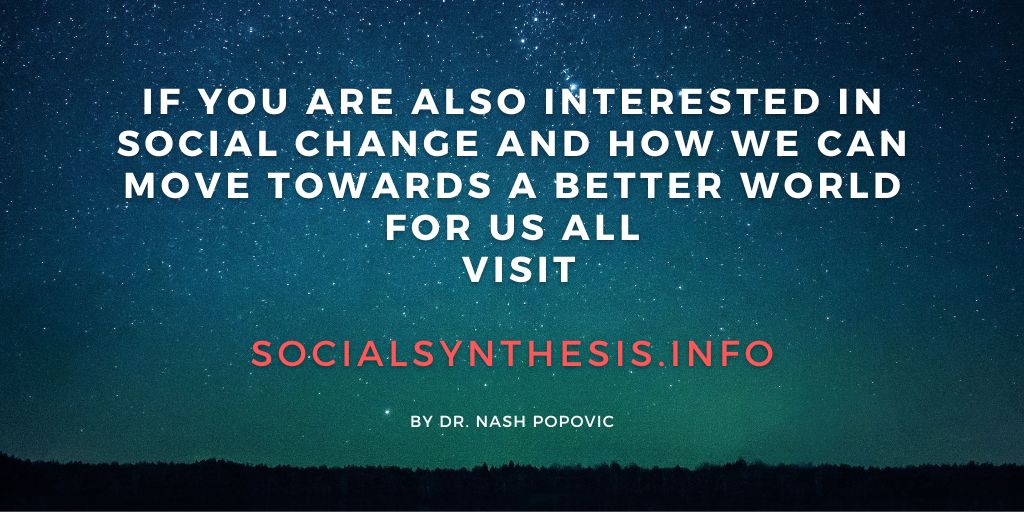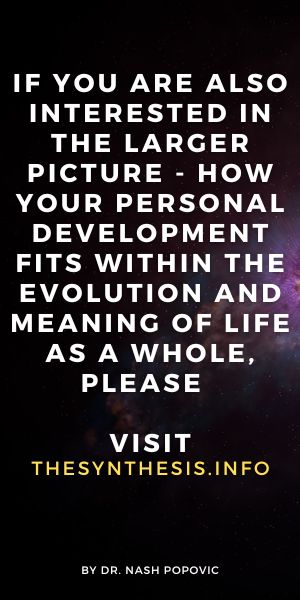33. Meaning
He who has a why to live can bear almost any how.
Friedrich Nietzsche (19c German philosopher)
Perceiving one’s life and actions as meaningful is a universal need but, as we will discuss below, meaning cannot be generalised (what is meaningful for one person may not be for another). So this area will focus on what can give us the sense of meaning, the scope of meaning, and the closely related concept of commitment.
Two types of meaning
There are two types of meaning, which are often confused with each other, so let’s clarify the difference between them:
- The meaning of life: this is the big one that relates to the question of whether life in general has a purpose, whether or not there is an overall plan. If there is, it is not up to us to make it but to find it. This type of meaning is usually associated with a divine creator, so many religious people believe that there is a meaning of life while many atheists believe that there is not.
- Meaning in life is a meaning that each individual can create for themselves. While meaning of life may be debatable, there is no doubt that we can all have meaning in life. However, as we create that meaning ourselves, very different things can be meaningful for different people (while the former would be the same for everybody). We will focus here only on meaning in life (the meaning of life is discussed in The Synthesis book)(1).
Why a sense of meaning matters
A number of psychologists assert that we require meaning to survive.(2) The most frequent reason given for suicide is that the person has no purpose for which to continue living.(3) A sense of meaning can help us cope with difficulties (as the above quote sums up well); research shows that people who report a stronger sense of the purpose of their lives remain healthier in the face of stress.(4) Moreover, a feeling that one’s life has some meaning is also correlated with happiness.(5)
Meaning and ideals
Like a movie or a book, life is more satisfying if it makes sense, if it is meaningful. When our activities do not have any meaningful relationship to one another, they do not give a satisfying overall character to one’s life. The sense that life is meaningful can be lost if you are bound only to short-term, day-to-day pleasures and tasks. Big aims, visions, ideals and deep emotions can be inspiring and can help us see value in everyday life. True, being realistic can save you from disappointment and naivety. However, being cynical and believing that any ideals are either unattainable or not worth pursuing is only a justification for giving up or not trying. If such sentiments are directed towards others, they may mask envy (of those who are still trying and may succeed). To avoid being a target, you don’t need to give up your ideals – just be careful about who you expose them to. To avoid becoming cynical yourself, make your ideals as realistic as possible.
Do you have a big aim or an ideal, something that gives you a sense of meaning and is worth living for? If you don’t, consider if you would like to have one (never mind if you are not clear what it is right now, keep reading and you may get some ideas).
What can give us a sense of meaning
Meaning in life can differ from person to person, but generally speaking, four categories can be distinguished:
- Some find meaning in a sense of personal fulfilment (e.g. certain pleasures such as reading, hobbies, travelling).
- For many, on the other hand, it is about engagement with those close to them (e.g. family, friends).
- Sometimes, personal development and achievements (in career, study, sports) may be the most important thing.
- To some, self-transcendence gives a sense of meaning (e.g. reaching the state of nirvana, or ending in Heaven).
These categories, of course, are not exclusive (they may overlap), but our choices in this respect determine, to some extent, our life paths. Which one appeals to you most?
The scope of meaning
- In the above instances the concern is primarily with yourself. Considering that our lives will come to an end one day, this scope is in most cases somewhat limited, so it is rarely completely satisfactory.
- Dedication to others (e.g. teaching, nursing, charity work) has a wider scope, which is less fragile because even if one dies its meaningfulness can carry on through the lives of others. This scope is different from finding meaning in being with one’s family and friends (see above) because it can include anybody – not just people who are close and dear to us.
- The universal provides boundless scope and can give a continual sense of meaning. It does not exclude the first two, but includes them as a part of a wider perspective. The universal is close to experiencing the whole of life as meaningful (even when you are waiting for a bus, listening to a bore, or filling in a form). You don’t even need to formulate it; what matters is being aware that you are a part of a larger picture and willing to contribute to or harmonise your life and actions with it. This is different from following an ideology or credo for fear of punishment or expecting a reward. Accepting some universal guidelines does not mean submission, although it may require rising above your instant urges and desires.
It should be stressed that the scope depends more on the attitude you take than on the kind of activity you do (e.g. you can do a cleaning job just to get paid or also to make the space nicer for others – the scope of meaning is wider in the latter case).
Imaginary dialogue: you can use imagination to clarify your thoughts in this area. Sometimes it is easier to consider certain matters in a dialogue form, which can be achieved by externalising and individualising a part of yourself. Some authors suggest creating an image that represents wisdom for you (it can be based on a sage, philosopher, friend, relative, or fictional character) and engaging in a dialogue with it.
Commitment
Commitment is an expression of meaning – meaning in action. When people describe their lives as meaningful, this usually implies that they are committed to something. A committed person has in mind an aim or purpose and is willing to invest effort and make some sacrifices, if necessary, to achieve it. You can hardly be committed to something that has no meaning for you. The other way around applies too: meaning without commitment is just an empty gesture or a pipe-dream.
Is there are anything that you are or wish to be committed to (e.g. a relationship, an activity, spiritual practice, family, a particular kind of lifestyle)? If you are not and don’t want to be committed to anything it may be worth considering why this is the case (e.g. it may feel too restrictive, you may have been disappointed in the past) and whether these reasons are really valid.
Some cautions about commitment
Commitments can be great but tricky, so it is good to be aware of some common challenges that may be encountered along the way:
- Some activities are finite, so the meaning they provide may be temporary. For example, if you are committed to a sporting achievement or your job, life may become less meaningful when a physical peak is reached or you retire. Of course, there is nothing wrong with being committed to such activities, it is only important to be aware that they may not provide a sense of meaning forever.
- Some commitments may be a dead-end, our circumstances may change or you may gain new insights that challenge your commitments. To know if you should stick with your commitment or change it, ask yourself occasionally ‘is this still meaningful for me?’
- We can be tempted by immediate pleasures or something exciting to abandon our commitment. In such situations it is a good idea to consider how you would feel after the pleasure or excitement wears off. Would you still think that abandoning your commitment was worthwhile?
(1) Popovic, N. (2008) The Synthesis. London: PWBC.
(2) Victor Frankl has written several books on this subject: Man’s Search for Meaning. London: Hodder and Stoughton, 1962; The Will to Meaning. New York: New American Library, 1970; The Unheard Cry for Meaning. New York [etc.]: Bantam, 1978. See also Yalom, I. (1980) Existential Psychotherapy. New York: Basic Books.
(3) Farber, M. L. (1968) Theory of Suicide. New York, London: Funk & Wagnalls.
(4) Bee, H. (1996) The Journey of Adulthood. New Jersey: Prentice Hall, p. 329.
(5) Argyle, M. (1987) The Psychology of Happiness. London: Methuen, p.215.

